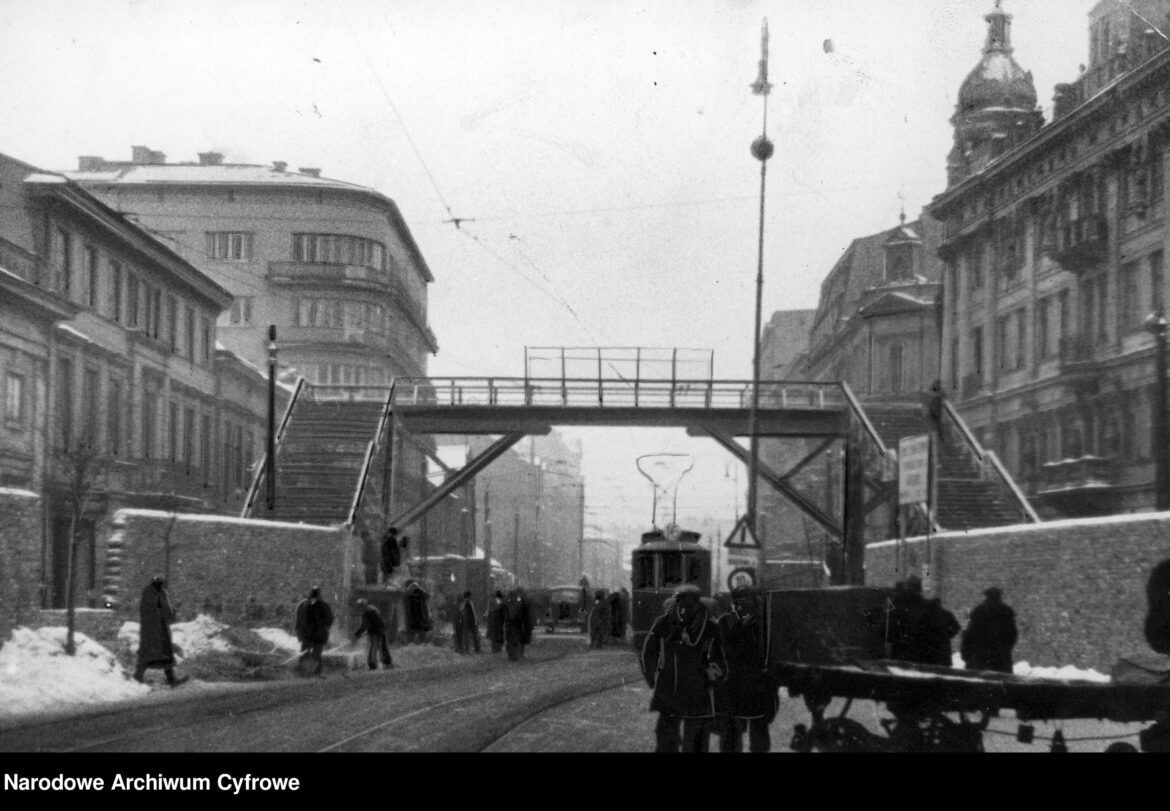During the German occupation, sometimes Poles hid Jews who were good enough to walk the streets freely, at the request of their Jewish friends and acquaintances. In this way, they could effectively help their persecuted compatriots. One such example was the antiquarian Karol Sakiel, who convinced his Polish colleague Jan Kamrowski to help Jews. Rescuing them by the decision of the German occupation authorities was punishable by the absolute death penalty.
Kamrowski was expelled from Gdansk in November 1939 and settled in Warsaw at 14 Mazowiecka Street, where he and Witold Zubrzycki ran a shop and a small service workshop. In the latter, he repaired cameras and optical equipment. He was doing so well that he moved to Józefów, near Warsaw, and at the same time in Warsaw he could afford to rent a room at 20 Chmielna Street.
In 1942, probably during or just before the liquidation action in the Warsaw ghetto, he was approached by the antiquarian Sakiel, who came from a well-known Jewish family of Warsaw antiquarians, with a request to take care of the Jews. He wanted Kamrowski to take the Ludmerer family into custody. The man agreed without hesitation.
Kamrowski placed the Ludmerers, i.e. Józef and his wife, in Józefów, paying them rent and supporting them in various ways. Their 18-year-old daughter was hiding elsewhere. It was decided that Józef would lead an open life under the name Budziak. To support himself, he took up a job. His wife did not leave Józef’s bungalow because of her so-called bad appearance, i.e. her Semitic features. This situation lasted for two years until 1944, and both his sister and Kamrowski’s mother, as well as his business partner Zubrzycki, were involved in helping them. The Ludmerers moved out of Józefów before the Warsaw Uprising.
In addition to the help given to the Ludmerers, Kamrowski became involved in rescuing another person at the request of the antiquarian Sakiel. Bronisława Kozłowska-Ratney was wandering around attics and cellars trying to survive. She hid at Kamrowski’s at 20 Chmielna Street for 6 weeks, but the Germans discovered a hiding place for Jews in this tenement, so Bronisława had to change her place of stay. She survived the occupation in another place that was found for her.
Kamrowski also helped Ewa Węgrowska. He produced a false kennkarte for her. Unfortunately, we do not know whether she also came to him on Sakiel’s recommendation. She survived the war, as did the Ludmerers.





